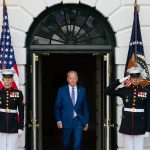Congress is considering legislation that would require the Chinese owners of TikTok to sell the company to prevent the Chinese government from potentially manipulating the minds of American teenagers. This move reflects growing concern over the influence of foreign entities in sensitive technology sectors. However, this isn't the only effort being made by the federal government to minimize the impact of foreign threats in these areas.
In the United Arab Emirates, the U.S. government worked with Microsoft to facilitate the tech giant's purchase of a minority stake in G42, the UAE's leading artificial intelligence company. As part of this deal, the U.S. government ensured that G42 removed Chinese hardware from its operations, underscoring efforts to limit China's influence on critical technology.
Similarly, the U.S. has awarded substantial grants to domestic and allied semiconductor manufacturers to reduce reliance on Taiwan-based TSMC, which the U.S. views as susceptible to Chinese pressure. This is seen as essential for national security and for maintaining a competitive edge in the global technology market. The CHIPS and Science Act, with a significant budget, supports these initiatives to bolster domestic technology industries when national security is at risk.
The U.S.'s share of global chip production has declined significantly, from 37% in 1990 to just 12% in 2020, leading the government to take action to rejuvenate its semiconductor industry. Senate Majority Leader Chuck Schumer praised the efforts to reinvest in U.S. manufacturing, emphasizing the creation of jobs and strengthening national security. The initiative has generally been well received, but some critics argue that government subsidies can lead to bloated and inefficient companies.
Experts agree that AI and cybersecurity are critical to national defense systems and infrastructure, making the government's focus on these sectors vital for national security. However, critics of government intervention in markets argue that such subsidies might distort competition and lead to inefficiencies.
Despite these concerns, the U.S. is determined to reduce reliance on foreign technology, focusing on building a strong domestic industry to counter threats from nations like China. The aim is to ensure the security of essential technology sectors, while preventing foreign interference and manipulation.
This approach is reminiscent of the tech and arms race during the Cold War, with a contemporary emphasis on safeguarding national interests against countries with advanced technological capabilities. The initiatives reflect a broader effort by the U.S. to maintain its technological advantage while addressing emerging security threats.




